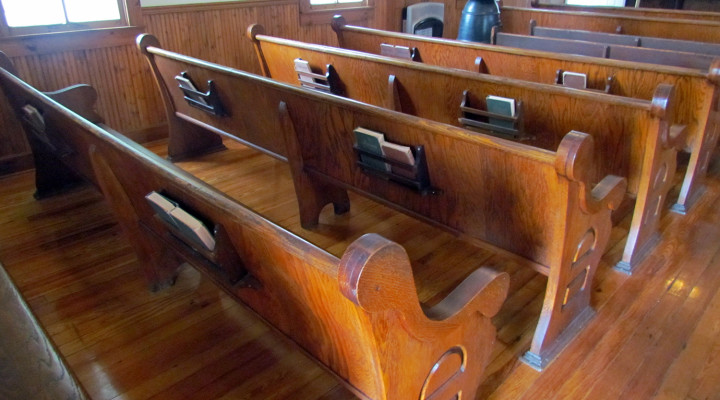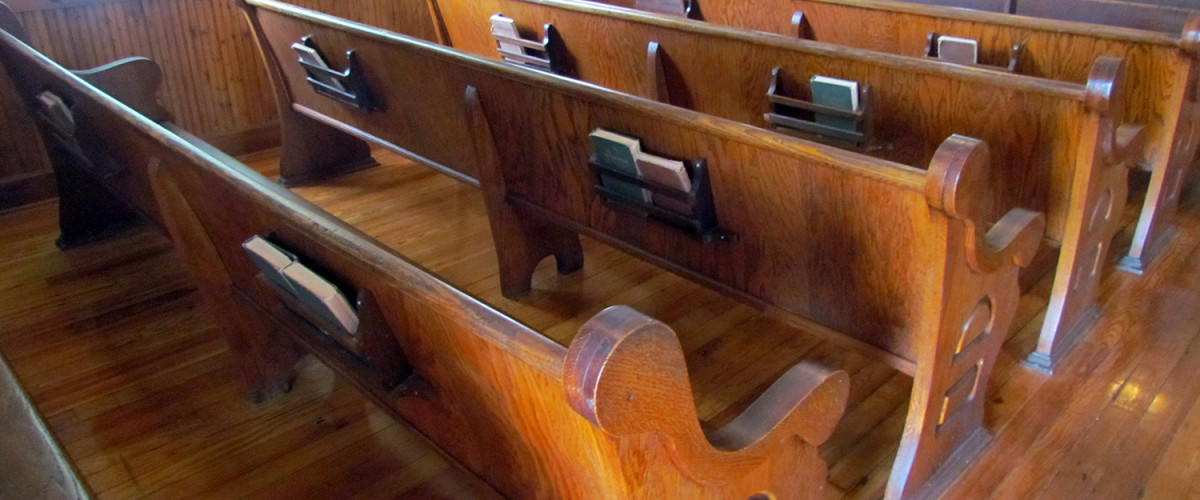Michelle Van Loon has seen several sides of Christianity as a child of the Jesus movement who ended up, for a time, in a fundamentalist church.
So she can spot the difference between concern and control in a congregation. She also knows spiritual accountability and spiritual abuse when she sees them.
So when a prominent Christian leader took to social media recently to chastise those who do not regularly attend church, she saw it for what it was: bullying.
And that’s what inspired her to post a blog for Christianity Today titled “Put Down the Church Attendance Scorecard.”
Van Loon is an author and blogger who lives in Chicago, where she currently attends a megachurch and is a student at Northern Baptist Theological Seminary.
Church attendance — or non-attendance — is one of the most spiritually abusive topics in church today, she says. Campaigns to boost small-group sessions, Bible studies and, of course, Sunday worship, often contain criticisms of lifestyles and life circumstances that may hinder consistent physical presence at church, she said.
“Many hear these reminders as genuine concern for attendees’ spiritual health, but for some of us, it feels like peer pressure,” she said in the April 11 blog.
Van Loon spoke with Baptist News Global about the pressures churches put on their members — and how they can stop or prevent such spiritual abuse.
From your experience, are a lot of churches still being pushy about attendance?
What prompted the post … was that I saw someone from a well-known organization which was having a huge conference write a very mean-spirited tweet questioning the commitment and morality and character of people who were not showing up on church on Sunday morning and being committed to worship on a weekly basis …. That kind of score keeping is kind of mean and it’s kind of a hallmark of how a spiritual abusers functions in leadership.
Is that kind of abuse getting worse as church membership declines?
It just depends on the congregation and the metrics by which pastors retain their positions. I think when fear gets injected into the equation, abuse is more likely to happen. If someone is afraid to lose their position — and that fear is driving them — it’s usually not driving them towards love.
How are those abusive appeals usually couched?
In a situation like this it’s when someone is using their position in power — the microphone holder — to demand or shame people into lifestyle compliance. I’m not talking about things like “you men shouldn’t watch porn.” … But when it becomes “we are more spiritual than every other church in the neighborhood and if you want to be part of us you need to do part of the following — don’t vaccinate your kids or don’t vote for “blank” or you need to dress a certain way, or we need to see your attendance.”
What inspired the scorecard analogy?
That also came from my editor at the Her.meneutics blog. But that scorecard is a way of marginalizing members or provoking members that aren’t quite up to snuff. Even though Christ’s forgiveness is so big and so full and covers every sin, especially in really dysfunctional churches the memory of any sort of failure or idiosyncrasy lasts an awfully long time. … It’s subtle, but a leader can make a big difference by being pastoral and nurturing and inviting, or by creating a culture of shame that spreads to the people.
But isn’t it possible, in some cases, that lackluster attendance really does reflect an individual’s lack of commitment or their fidelity to Christ?
Absolutely, absolutely. … We absolutely should be speaking into one another’s lives. Your gifts belong to me and my gifts belong to you. And a good leader is going to pursue people that maybe are on the margins, that aren’t moving toward the Lord and toward growth. It’s not a matter of swinging to the other extreme, but when shame and performance is driving the way we view each other, you are going to end up with abuse and dysfunction. If genuine pastoral care is behind it, without fear … it’s going to work.
Do you see these issues driving the growing ranks of the nones and dones, and continuing church closure trends?
If you read the book Church Refugees, it talks about people who have been burned or who are burned-out by being in churches, or in leadership situations, where they have found themselves being bullied into performance. … A few years ago on my own blog … I put together an informal survey asking people over 40 “what is your relationship like with local church?” I ended up getting more than 500 responses from people. A lot of people wrote me a lot of sad stories. They were exhausted from being bullied, doing the same thing over and over again hoping for different results. … I think the dones research shows it’s not just Millennials. It is a wake-up call. … It’s a call to do some serious soul searching and reform — and bullying is not going to keep people in a church.
How can churches check themselves to determine if their rhetoric is bullying?
A brave leader may want to pursue some of the people who have left to find out … what it was and ask for some honest assessment without retribution. Honest reflection may require the freedom for people to speak anonymously — perhaps even to someone from the outside about what the culture is like. And they may need the willingness to do some corporate repentance.



